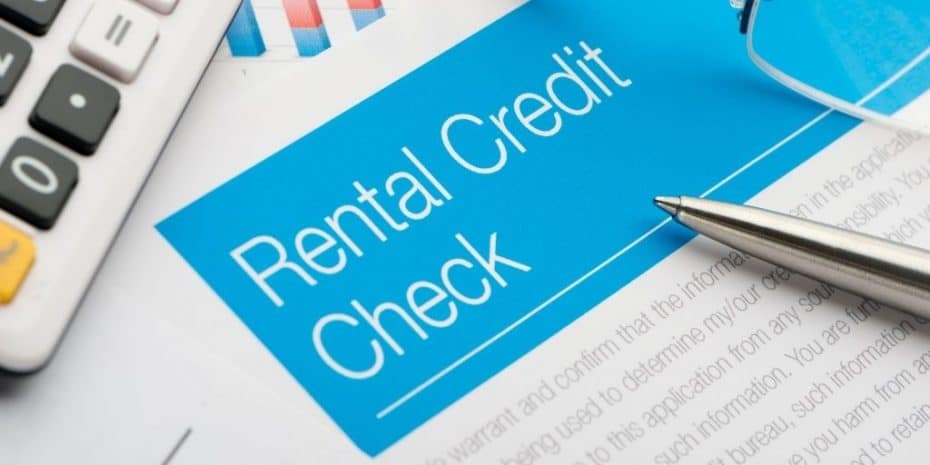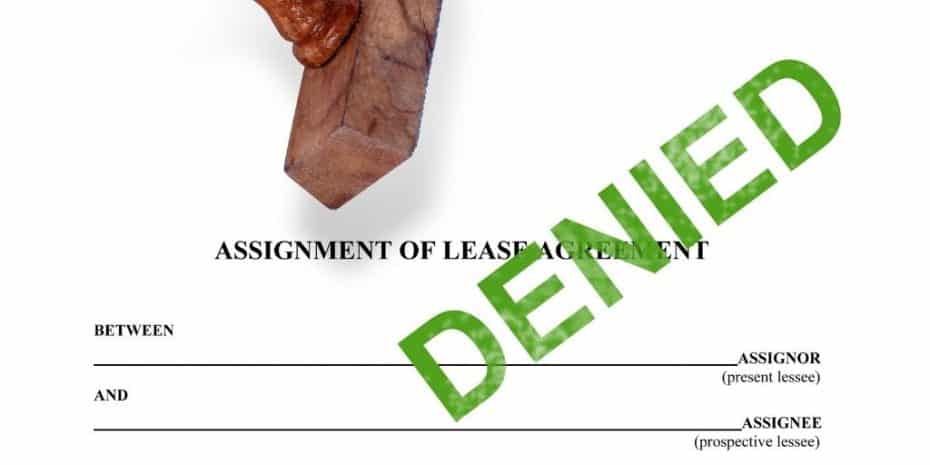
REtipster does not provide legal advice. The information in this article can be impacted by many unique variables. Always consult with a qualified legal professional before taking action.
Bad tenants are a nightmare.
If you try to get rid of toxic renters at your property, you can expect to incur thousands of dollars in costs: months of unpaid rents, damage to your property, eviction court costs, attorney or other legal help, and, of course, dozens of hours of your time wasted.
The best answer to avoid this appalling problem is to avoid bad tenants in the first place through aggressive tenant screening, including credit reports, criminal checks, eviction reports, income verification, character references, and rental history verification with several past landlords. If you play it right, you can prevent 99% of your tenant-related headaches.
But what about that remaining 1% where the tenants just refuse to play by the rules? Before we review your options, let's outline what you can and cannot do.
How to Avoid Bad Tenants
Tenant screening is a critical component of avoiding bad tenants, but prevention doesn’t stop here.
Landlords need to send a consistent message that they take the lease terms seriously and enforce them without hesitation. That means conducting regular inspections, serving lease violation notices immediately, and checking in with tenants about maintenance, and most of all, serving eviction warning notices on the first day the rent officially becomes late.
Some desperate landlords, however, resort to self-help evictions.
Self-Help Eviction Is Illegal
While it may seem like a convenient solution to resolving a tenant issue, self-help evictions—of any kind—are illegal.
Not slap-on-the-wrist illegal, but rather you-can-go-to-jail illegal (especially in New Jersey, where a landlord can face up to six months in jail).
A self-help eviction is any intervention the landlord takes to make the property unlivable and/or to try and coerce the tenants to vacate. They include and are not limited to:
- Changing the locks.
- Turning off utilities.
- Physically blocking access to the property.
- Removing the tenant’s belongings.
- Harassment of any kind, including threats of physical violence.
- Sending Vinny over to the property with a lead pipe.
There is only one legal pathway to forcibly remove tenants from a property: filing for eviction in court. That said, you can enact some creative ways to resolve the issue peacefully.
6 Ways to Get Rid of Bad Tenants
What are some alternatives to filing eviction? We’ve put together six creative ways to get rid of bad tenants.
1. Raise the Rent
Are your tenants annoying, but not actively violating your lease agreement? Maybe they drive their neighbors crazy or call you every other day to ask you to change a light bulb?
If your tenants aren’t actively violating your lease but you just don’t want to rent to them anymore, consider raising the rent—significantly— the next time their lease comes up for renewal.
That said, double-check your state and local laws as some jurisdictions restrict how much landlords can raise the rent in a single hike. In addition, if you have a fixed-term lease with a specified ending date, you can't increase the rent before that date.
Well, at least you’ll be compensated for your troubles.
2. Non-Renew Their Lease
You don’t have to renew your tenants’ lease when the lease term ends… or do you?
Be careful: In some tenant-friendly jurisdictions, landlords have to justify non-renewing their tenants.
In most cases, though, you can simply send a polite, professionally written notice explaining that the lease is not renewing. Thank them for their time with you, explain your move-out policies (including a move-out condition inspection), and be sure to emphasize how they can ensure they receive their security deposit back.
Most of all, make sure you send non-renewal notices within the legal time window in your state. It could be 30, 60, 90 days or even longer.
Check with your state's rental/landlord laws (or have a lawyer do so for you).
3. Help Them Find a New Home
It may sound counterintuitive, but if you want your bad tenants out quickly, you might need to help them find alternative accommodations.
Show them websites or offline publications to search and review listings. Point out local community services that help residents find housing. If they aren’t inherently terrible tenants and were simply a bad fit for your property, you can even ask around in local landlord and real estate groups and clubs for info on upcoming vacant units.
Just make sure you don’t burn bridges with your fellow local landlords and investors. Don’t lie about an applicant’s history. Instead, try a positive spin… as long as it doesn’t mislead those landlords.
4. Bring a Full Threat of Legal Pursuit
Just because you can’t send Vinny over with a lead pipe doesn’t mean you can’t threaten (okay… that's a little extreme, but you get my drift.) You just have to make sure your “threats” are within legal limits.
Either hire an attorney or simply buy your attorney friend a few beers and have them draft a menacing letter to your tenants. Threaten lawsuits, deficiency judgments, ruined credit, collections, and garnished wages.
Send a brutally clear message: there are dire consequences if they don’t correct their lease violations and/or vacate peacefully.
This tactic works best if you’ve already established that you enforce your lease agreement, by serving an eviction warning notice as soon as the rent became late. You must also then file in court for eviction, as soon as the mandatory waiting period ends.
Try serving this threatening letter on the same day you file in court for eviction.
“I filed today in court for eviction. I’m hoping we can resolve this without further legal action, but here are the legal actions we will be pursuing if you do not cure your lease violation.”
Then cue up the threats!
5. Offer Cash for Keys
This one will stick in your craw… but it’s most certainly an effective (if not the most effective) means of getting awful renters out of your investment properties.
If a full eviction will cost you $4,000 and take the next three months, wouldn't it be a lot cheaper and faster to just bribe offer your tenants $500 to move out next weekend?
I know, I know. It means rewarding people for their bad behavior. But here’s the thing… remember all those legal threats we talked about above in that threatening letter? In most cases, it will cost you more to pursue deadbeat tenants than it does to simply write off the losses.
Our legal system already allows tenants enormous leeway for their bad behavior. The system is designed to protect tenants, not landlords. If a tenant defaults on their rent, they can either live for free for the next few months while you jump through hoops in eviction court, or they can take your offer and move out earlier.
Either way, they win.
Now, that’s a bitter pill for most landlords to swallow… but again, that's why prevention is so important.
RELATED: The Quick and Easy Guide to Tenant Screening
There’s one crucial caveat with cash for keys though: You must set strict conditions for the offer. They only receive the money if they leave the property spotlessly clean. The same kind of condition they would need to leave it in if they were expecting their regular security deposit back.
This is one of the reasons you’re stooping to this method: If you have to evict them normally, they will leave your property in terrible shape. I guarantee it.
6. Prove a Bad Tenant's Illegal Activity (If Any)
Ready for the most aggressive tactic to expel terrible tenants?
A recurring theme throughout this article has been consistent enforcement of your lease agreement. We mentioned regular inspections of your rental unit — and here’s one more reason to conduct them:
Many states and municipalities allow for expedited evictions if your tenants are breaking the law.
Granted, you still have to provide advance written notice before entering your property. So, your tenants might arrange to be home when you enter, which will make it more difficult for you to find and prove illegal activity.
But, inspections aren’t the only reason that landlords enter their rental properties. Repairs and maintenance are valid reasons to enter as well. Perhaps now is a good time to service the furnace?
Try to schedule your visits when you expect them to be at work.
Be careful not to cross the line here, though. You can’t ransack your renters’ rooms. Even opening drawers and closets can be considered an invasion of privacy. But it’s surprising how poorly many people hide their drugs and paraphernalia.
And, let’s be honest, there are only so many places you can put a three-foot glass bong.
Snap photos (with the timestamp turned on), notify the local cops and serve the appropriate eviction notice for illegal activity.
A Final Word of Caution
A normal, legal eviction should always remain part of your plan. Use eviction warning notices and court filings to send a loud and clear message to your tenants that you take the lease agreement seriously and will defend it aggressively.
With that said, evictions are expensive and time-consuming; even in states that process it the fastest, it can take several weeks. Even worse, it comes with countless loopholes that “professional tenants” can use to prolong their free stay in your property.
The tactics outlined above are not mutually exclusive. On a case-by-case basis, you can combine several of these tactics, alongside filing a normal eviction.
But don’t expect your tenants to go quietly. Keep detailed records and prepare your paperwork, fully expecting your tenants to fight back in court.
Most of all, avoid this mess in the first place, with thorough tenant screening and consistent lease enforcement. An ounce of prevention will keep your rents inbound and your properties undamaged.


















